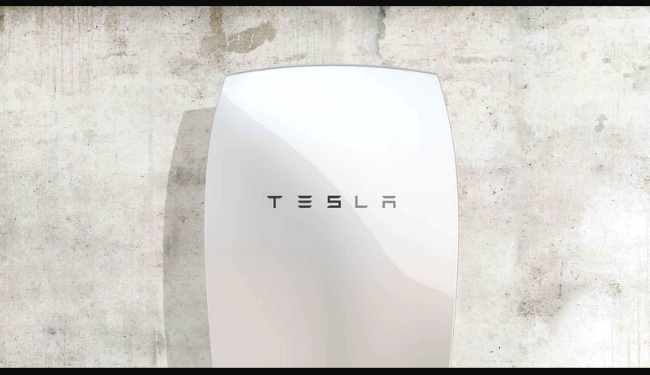Elon Musk: ‘We’ve Dramatically Increased the Power Capability’ of the Tesla Powerwall
ENERGY, 15 Jun 2015
Lorraine Chow, EcoWatch – TRANSCEND Media Service
12 Jun 2015 – Its only been a month since Elon Musk unveiled a game-changing suite of batteries for businesses, homes and utilities to help wean the world off fossil fuels. And now, the Tesla CEO is already upping the ante with the Powerwall, a home battery that charges using electricity generated from solar power.

Tesla’s Powerwall is a rechargeable lithium-ion battery made to store energy at the residential level. Photo Credit: Tesla Energy
“We’ve dramatically increased the power capability of the Powerwall,” Musk said at Tesla’s annual stockholders’ meeting in Mountain View, California this week. “It basically more than doubled the power output of the power pack, and the price is going to stay the same.”
According to Computer World, prices for the products will stay at $3,000 for the seven kilowatt-hour (kWh) daily cycle version and $3,500 for the 10 kWh backup UPS (Uninterruptible Power Supply) version. The batteries will go from having a two kilowatt (kW) steady power output and a 3.3 kW peak output to a 5 kW steady output and 7 kW peak output.
“The daily cycler is sort of more about economics or getting off the grid completely, whereas the backup UPS is just there to ensure your house has power if there’s ever a power outage,” Musk explained.
Solar panel owners and future solar panel owners will receive “priority” treatment for delivery of the new Powerwall batteries, Computer World reported. “It doesn’t have to be SolarCity,” Musk said of his sister company, of which he’s a chairman. “SolarCity is, of course, preferred, if you like the best.” As we previously reported, the solar installer is the first in line to incorporate Tesla’s new batteries.
The reason behind the upgrade came after the products received some criticism when they were first released. According to Edie.net, potential buyers alleged that the 2 kWh output wouldn’t be enough to power a standard house. Additionally, Forbes staff writer Christopher Helman also crunched the numbers and found that the 15 cents per kWh of solar power (generated by SolarCity’s panels) plus the 15 cents to cycle a kWh from the Powerwall add up to 30 cents per kWh of electricity, a “bonkers” amount considering that the national average for utility-provided electricity is 12.5 cents per kWh, Helman pointed out.
However, as Musk said at the shareholders’ meeting, “We actually took some of the negative feedback to heart, and I’m happy to announce we’ve dramatically increased the power capability of the Powerwall.” The added power capacity should power an entire house, provided the occupants aren’t running energy-hungry air condition units, Musk said.
Watch Musk (who starts speaking at 13:30) at the Tesla shareholders’ meeting in the video below:
httpv://www.youtube.com/watch?v=Q60FOIV6Ew8
DISCLAIMER: The statements, views and opinions expressed in pieces republished here are solely those of the authors and do not necessarily represent those of TMS. In accordance with title 17 U.S.C. section 107, this material is distributed without profit to those who have expressed a prior interest in receiving the included information for research and educational purposes. TMS has no affiliation whatsoever with the originator of this article nor is TMS endorsed or sponsored by the originator. “GO TO ORIGINAL” links are provided as a convenience to our readers and allow for verification of authenticity. However, as originating pages are often updated by their originating host sites, the versions posted may not match the versions our readers view when clicking the “GO TO ORIGINAL” links. This site contains copyrighted material the use of which has not always been specifically authorized by the copyright owner. We are making such material available in our efforts to advance understanding of environmental, political, human rights, economic, democracy, scientific, and social justice issues, etc. We believe this constitutes a ‘fair use’ of any such copyrighted material as provided for in section 107 of the US Copyright Law. In accordance with Title 17 U.S.C. Section 107, the material on this site is distributed without profit to those who have expressed a prior interest in receiving the included information for research and educational purposes. For more information go to: http://www.law.cornell.edu/uscode/17/107.shtml. If you wish to use copyrighted material from this site for purposes of your own that go beyond ‘fair use’, you must obtain permission from the copyright owner.